If you sell relatively complex and expensive products and services to businesses then you should probably be publishing white papers. Very often, clients are hesitant to to commit to an expensive and complicated product or project until they first have all the facts. Therefore, the more compelling information they have at their fingertips about your company and what it offers, the better the chances of you closing the sale.
The US-based Content Marketing Institute reports that around 61% of B2B (business-to-business) companies use whitepapers. Marketing Sherpa, another US institute, believes white papers are probably the most important tool for those marketing to businesses. Be sure, though, that their use is not limited to B2B endeavors. Many attorneys and physicians, for example, use them in the B2C (business to consumer) market.
A common mistake is to pepper these documents with sales hype. This is not the place to do that. It undermines the credibility and value of your arguments. Right at the end of the document, however, there can … and probably should, be a call to action. It could be a free 30-minute consultation or simply your contact details.
Three essential white paper components:
1) Identify a key problem faced by your customers and explain how it can impact them – such as lost market share, cost increases or reputational damage.
2) Describe other approaches and solutions to this problem that have been used and point out their limitations. Then, present your solution and address how it has helped other companies and why it works. Describe in detail, preferably with numbers, demonstrating the scale of improvements. Then round-up with a conclusion.
3) Wherever possible, back your arguments using research and statistics from respected third parties such as government agencies and trade associations. This builds credibility.
A truly great white paper is educational and even groundbreaking. It should have your prospects nodding in agreement as they read it. They should come away better informed and believing that you clearly grasp their problem and understand how to fix it.
A well-produced white paper also places you as the go-to expert in your field. That not only helps justify buying from you, but possibly paying a premium, as your company’s expertise makes you a safer bet to do business with.



